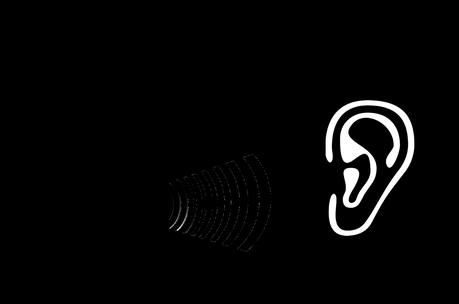
Image Credit Pixabay.com License CC0
Problems with your hearing can creep up on you quite slowly. You may not notice them at first, in fact, it may be quite a while before you are even able to acknowledge the symptoms of hearing loss. But many people experience a loss of hearing, and it is not something that is limited exclusively to old age.
What Are The Symptoms Of Hearing Loss?
There may be a few telltale signs that you are experiencing hearing loss. If you find that you have to ask friends and family to repeat themselves a lot because you missed what they said, it is likely that it is your hearing that is at fault. Often, it may feel as though it is the person that is speaking who is at fault. It may feel as though they are mumbling, talking quietly, or just facing in the wrong direction. However, if you notice that you are finding similar problems in numerous conversations, then chances are that you have hearing loss.
Other symptoms that you may find will include not being able to distinguish voices when you are in a room full of people. When there is a lot of chatter or music in the background, it can be hard for the brain to distinguish the voices of those that are right in front of you.
Similarly, when talking on the phone you may notice dips in the conversation. Background noise on the line can often appear louder than the voice of the person that talking to.
What To Do If You Are Experiencing Hearing Loss
If you are worried about your hearing, you can either pay a visit to the doctor or your local audiologist. Sometimes, hearing loss may be the result of an ear infection or a blockage of wax. Under the right circumstances, this can be cleared.
If this is not the case, your audiologist will be able to carry out a number of different tests to check the level of hearing loss and identify the level that it is affecting you.
These tests may involve a physical examination of your ear canal and tests that play certain sounds to you to see what you can hear. Your audiologist will also take some background information about your lifestyle and general health so that they can understand if there are any specific underlying causes of your hearing loss.
Getting A Hearing Aid
An audiologist may suggest that you need to get a hearing aid. Wearing a hearing aid can help your hearing dramatically, and you will soon be able to hear sounds that you have been missing out on for some time.
Many hearing aids on the market are subtle and lightweight, meaning they will not stand out or cause you any discomfort when you are wearing them.
Some hearing aids have additional teach features that will allow you to pair your hearing aid to your smartphone. This can enhance your experience by allowing you to alter the functions of the hearing aid from your mobile device.
Getting the right hearing aid for you is important. Hearing aids are specifically set up to your own hearing needs, and to get this right you will need the help of an audiologist or hearing aid specialist.
Looking After Your Hearing Aid
You may have to have your hearing aid batteries changed on occasion, and in this case, you should look at having this done by a hearing aid specialist. Getting the right battery is vital as the wrong type could cause problems.
Your hearing aid will be molded to your ear and it is important that you don’t allow this to get misshapen in any way. When you are not wearing it, make sure that you store it safely and do not allow it to get crushed.
Getting Used To Hearing Again
When you first get your hearing aid you may need to take some time to get used to it. Things will appear much louder than they used to, and you will find new clarity in the sounds of the world around you. This can be uncomfortable at first. You may find that some sounds are quite sharp and will be hard to listen to at first.
Stick with it, as you will get used to it. If you find that you are not able to fully adjust to wearing your hearing aid, speak with your audiologist as they may be able to offer some solutions that will be helpful.
This post was a collaboration.

